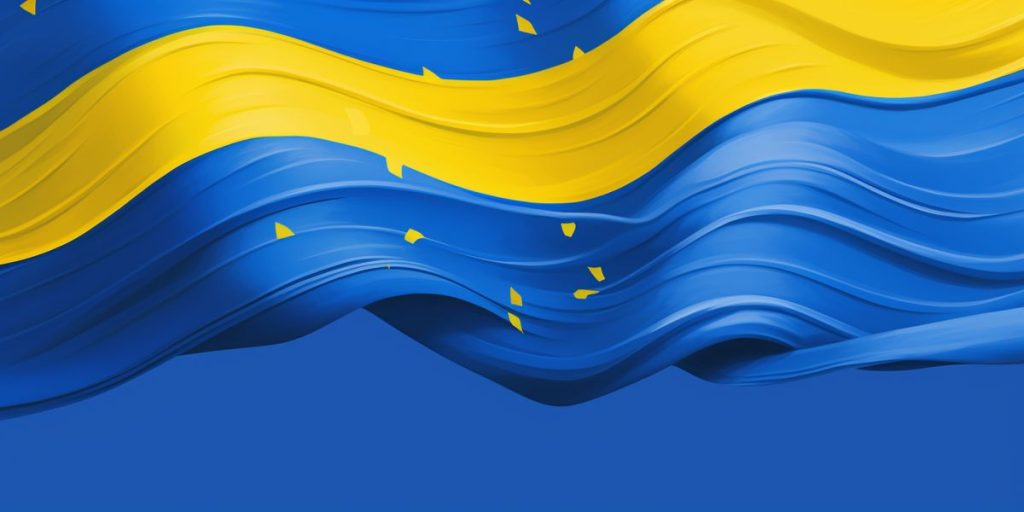The EU remains firmly committed to supporting Ukraine amidst the Russian invasion, considering initiating EU membership talks and proposing a 50 billion euro aid package. However, Hungary’s opposition to further financial support for Ukraine poses a challenge to the EU’s common front as it attempts to isolate Russia, and negotiations are ongoing to reach a consensus. The decisions made at the upcoming summit will not only impact Ukraine’s immediate needs but also reflect the EU’s role on the global stage and its dedication to supporting its neighbors in times of crisis.
What is the EU’s stance towards Ukraine amidst the Russian invasion?
The European Union is firmly committed to supporting Ukraine in the face of Russian aggression. EU leaders are considering initiating EU membership talks with Ukraine, contingent on meeting specific conditions. Additionally, the European Commission has proposed a 50 billion euro aid package to sustain Ukraine’s economy and defense. The EU seeks long-term inclusion of Ukraine within its fold.
EU Commitment to Ukraine
The European Union has consistently shown its support for nations facing challenges to their sovereignty and democratic values. As Ukraine confronts the adversity of a Russian invasion, the EU’s commitment to this Eastern European nation is more critical than ever. On a recent occasion, the European Union’s chief executive emphasized the importance of backing Ukraine for the long haul. This sentiment came forth at a pivotal moment, preceding a key summit where European leaders would deliberate the future scope of assistance to Ukraine.
The call for unwavering support underlines the EU’s dedication to Ukraine’s cause. At the forthcoming leaders’ summit in Brussels, the discussion is not only about immediate financial aid but also Ukraine’s long-term inclusion in the European fold. The European Commission has suggested that the summit should decide to initiate EU membership talks with Ukraine, provided it fulfills certain pre-established conditions. A significant stride was taken when Ukraine passed legislation, including laws on national minorities—an area of particular concern to Hungary—which addressed three of the four outstanding conditions. With only one condition pending, the anticipation of Ukraine’s progression towards EU candidacy is growing.
Hungary’s Stance and EU Dynamics
The path to unity within the EU is, however, not without its obstacles. Hungary has expressed its opposition to additional financial support for Ukraine, hinting at a potential veto against furthering Ukraine’s EU membership bid. This resistance comes at a time when the EU is grappling with how to best support Ukraine, both fiscally and through its European integration aspirations.
Hungary’s reticence, under Prime Minister Viktor Orban, who has openly fostered ties with Moscow, poses a stark challenge to the EU’s common front, especially as the bloc attempts to isolate Russia for its military aggression. As EU officials and Hungary continue negotiations, the hope persists that a consensus can be reached—particularly as unanimous agreement is necessary for Ukraine’s EU membership to advance.
Financial Aid and the Future Summit
The European Commission has proposed a sizeable economic aid package for Ukraine, amounting to 50 billion euros over the next five years. This support is crucial for sustaining Ukraine’s economy and bolstering its defense as the war continues to take a toll on the nation’s resources and infrastructure. The summit will critically evaluate this proposal, balancing the immediate needs of Ukraine and the long-term vision of a Europe that includes Ukraine within its fold.
As the EU leaders gather for the summit, the decisions made will echo well beyond the conference rooms of Brussels. They will send a message about the EU’s role on the global stage and its readiness to support its neighbors in times of unprecedented crisis. The solidarity with Ukraine is tested, and the world watches as Europe navigates these turbulent waters, striving for unity and steadfast support for a country fighting to preserve its independence and democratic integrity.
1. What is the EU’s stance towards Ukraine amidst the Russian invasion?
The European Union is firmly committed to supporting Ukraine in the face of Russian aggression. EU leaders are considering initiating EU membership talks with Ukraine, contingent on meeting specific conditions. Additionally, the European Commission has proposed a 50 billion euro aid package to sustain Ukraine’s economy and defense. The EU seeks long-term inclusion of Ukraine within its fold.
2. How has the EU shown its commitment to Ukraine?
The European Union has consistently shown its support for nations facing challenges to their sovereignty and democratic values. The EU’s commitment to Ukraine is more critical than ever in the face of Russian invasion. EU leaders have emphasized the importance of backing Ukraine for the long haul, and discussions at a recent summit focused on the future scope of assistance to Ukraine.
3. What is Hungary’s stance on providing financial support to Ukraine?
Hungary has expressed opposition to providing additional financial support to Ukraine, which poses a challenge to the EU’s common front. Prime Minister Viktor Orban, who has fostered ties with Moscow, has hinted at a potential veto against furthering Ukraine’s EU membership bid. Negotiations between Hungary and EU officials are ongoing in an effort to reach a consensus, as unanimous agreement is necessary for Ukraine’s EU membership to advance.
4. What is the proposed financial aid package for Ukraine?
The European Commission has proposed a 50 billion euro economic aid package for Ukraine over the next five years. This support is crucial for sustaining Ukraine’s economy and bolstering its defense in the midst of the ongoing war. The decision on this proposal will be critically evaluated at the forthcoming summit, taking into account the immediate needs of Ukraine and the long-term vision of European integration.

